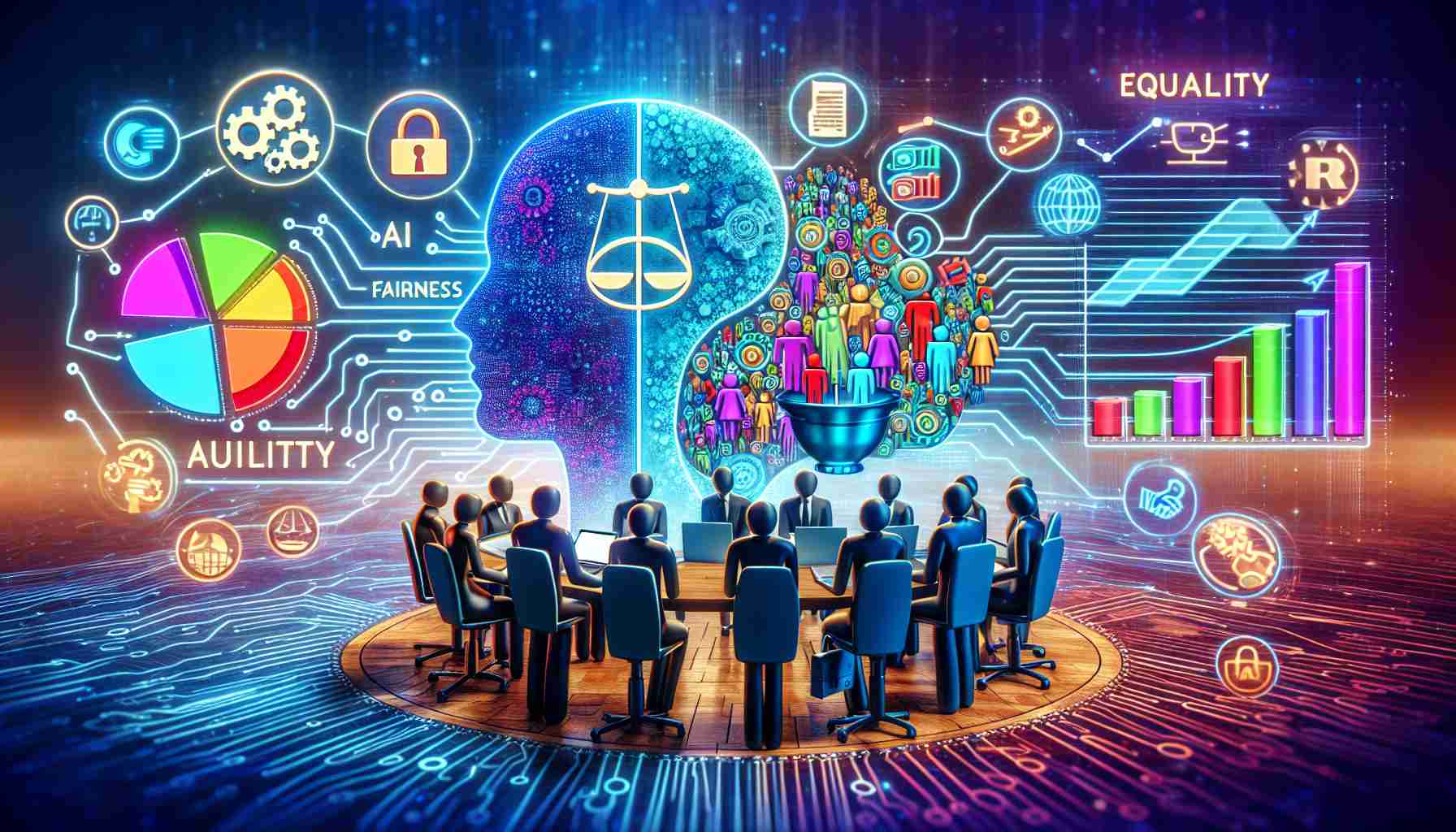In the ever-evolving landscape of artificial intelligence (AI), human resources (HR) departments are becoming indispensable players in the safe and ethical adoption of this technology. A recent industry guide from McLean & Company highlights the crucial role that HR leaders play in embedding responsible AI practices within organizations. The report identifies that many companies hastily pursue AI integration to edge out competitors, often neglecting AI strategy and governance in the process.
While organizations grapple with a constantly shifting matrix of laws, regulations, and security demands concerning AI, HR departments are often overlooked in strategic AI planning, despite their essential role in shaping company culture and change management. Responding to this gap, McLean & Company’s guide “Develop Responsible AI Guiding Principles” aims to equip HR professionals with the tools to lead the charge in ethical AI implementation.
Responsible AI, as defined in the guide, encompasses the processes of creating and deploying AI in ways that minimize potential damage to individuals, businesses, and society. To realize this goal, the guide recommends a collaborative, three-step procedure: assembling an AI governance committee, drafting tailored guiding principles, and constantly refining and enforcing these principles throughout the organization.
McLean & Company emphasizes that there’s no one-size-fits-all approach for responsible AI principles, urging businesses to consider a host of factors that include industry-specific regulations and internal corporate values. By forming cross-functional teams that include HR experts, organizations can draw on their knowledge of ethical, legal, and workforce-centric considerations.
This guide aims to not just pave the way for compliant and ethical AI use but also to fortify HR’s strategic position in steering digital transformation. The call to action is for HR leaders to embrace their role in orchestrating change and safeguarding the future of work through responsible AI practices.
In the context of this development, it is important to consider the broader AI industry, which has been expanding rapidly, becoming an integral part of various sectors including healthcare, finance, automotive, and many more. According to market research from firms like Grand View Research and MarketsandMarkets, the global AI market size is projected to grow substantially within the coming decade. This expansion is fueled by the increasing adoption of cloud-based services and applications, growth in big data, and advancements in natural language processing and machine learning technologies.
The anticipated growth of the AI industry inevitably raises questions and concerns related to ethical considerations, job displacement, privacy issues, and the need for effective governance. As AI systems become more complex and pervasive, the potential for them to perpetuate bias, make opaque decisions, or infringe on privacy has led to calls for stricter regulations and controls.
Market forecasts suggest that as the AI market grows, demand for AI governance and ethical frameworks will rise in tandem. Organizations that adopt AI technologies are expected to increasingly invest in setting up ethical guidelines and governance structures to navigate the legal and ethical complexities AI introduces. Government bodies around the world are also beginning to draft and introduce regulations aimed at controlling the development and use of AI in a responsible manner.
However, the implementation of AI in businesses comes with a set of challenges and issues. One major concern is the potential displacement of jobs due to the automation of tasks traditionally performed by humans. This places further emphasis on the role of HR departments in managing workforce transitions, upskilling employees, and maintaining employee engagement during a period of significant change.
Another concern is around AI ethics and bias. Algorithmic bias can lead to unintentional discrimination and requires careful consideration and mitigation. HR’s involvement is vital in ensuring that AI systems are designed and implemented in a manner that respects diversity and promotes inclusion.
To stay informed about the AI marketplace and its surrounding legislative landscape, companies can refer to various authoritative online resources for the latest updates and insights. Reliable sources include the websites of major industry research firms and government regulatory bodies.
Overall, the HR industry is at a crossroads when it comes to AI. By actively participating in the creation and enforcement of AI policies, HR professionals can help ensure that the introduction of AI technologies supports a fair, ethical, and responsible workplace culture that anticipates the future needs of the workforce and business.

